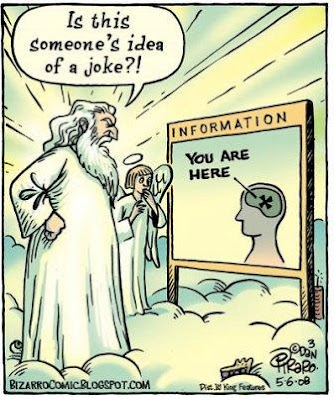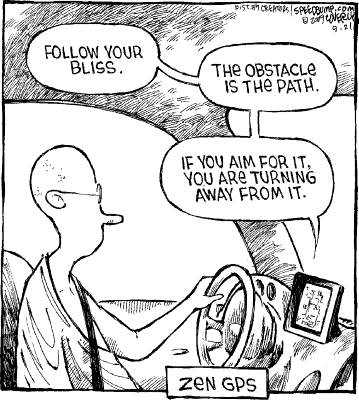
The Noel Strengths Academy defines it this way:
- A sense of connection to a presence beyond this world
- Having a coherent set of beliefs that shape conduct and provide comfort
- Perceive their own higher purpose
- In pursuit of the deeper meanings of life
- Conscious of their own role in the larger scheme of things


- Underuse: Anomie
- Overuse: Fanaticism
Key Research:
- Rank order of Spirituality in populations from:
- US : 21;
- European: 24
- Asia: 20
- Latin America: 21
- Sub-Saharan Africa: 17
- Middle east: 20
- The character strengths most associated with the meaning route to happiness are religiousness, gratitude, hope, zest, and curiosity (Peterson et al., 2007).
- In addition to replication of the connection between hope, gratitude, love, zest, and curiosity with life satisfaction, the strengths that were the best predictors of future life satisfaction were hope and spirituality (Proyer et al., 2011).
- Among high school students, other-oriented strengths (e.g., kindness, teamwork) predicted fewer depression symptoms while transcendence strengths (e.g., spirituality) predicted greater life satisfaction (Gillham et al., 2011).
Psychological Impacts of Spirituality/purposefulness
- Spirituality is linked to greater well-being: Research has shown that individuals with high levels of Spirituality tend to have greater well-being, including higher levels of life satisfaction, happiness, and positive emotions (Peterson & Seligman, 2004).
- Spirituality is associated with greater resilience: People with high Spirituality tend to be more resilient in the face of adversity, and are better able to cope with stress and trauma (Tugade & Fredrickson, 2004).
- Spirituality is linked to greater gratitude: Research has shown that individuals with high levels of Spirituality tend to be more grateful, which is associated with greater well-being and life satisfaction (Emmons & McCullough, 2003).
- Spirituality is a key component of meaning-making: Spirituality is closely related to the ability to find meaning and purpose in life, which is a key component of human flourishing (Frankl, 1963).
- Spirituality is associated with greater self-awareness: Individuals with high Spirituality tend to have greater self-awareness, including a greater understanding of their values, goals, and motivations (Kashdan & Ciarrochi, 2013).
- Spirituality is linked to greater forgiveness: Research has shown that individuals with high levels of Spirituality tend to be more forgiving, which is associated with greater well-being and life satisfaction (McCullough et al., 1998).
- Spirituality is a key predictor of life purpose: Spirituality is a key component of life purpose, which is associated with greater well-being and life satisfaction (King et al., 2016).
- Spirituality is associated with greater self-acceptance: Individuals with high Spirituality tend to have greater self-acceptance, including a greater acceptance of themselves and their place in the world (Tay & Kuyken, 2013).
- Spirituality is linked to greater prosocial behavior: Research has shown that individuals with high levels of Spirituality tend to engage in more prosocial behavior, including volunteering and helping others (Schnitker & Johnson, 2010).
- Spirituality can be developed through practice and training: Research has shown that Spirituality can be developed through practice and training, such as through mindfulness and meditation (Hölzel et al., 2011).
Tayyab Rashid and Afroze Anjum offer 340 Ways to Use VIA Character Strengths including these four for Spirituality:
- Waking Up: A Guide to Spirituality Without Religion by Sam Harris
-
The Four Agreements: A Practical Guide to Personal Freedom (A Toltec Wisdom Book) by Don Miguel Ruiz
-
Essential Spirituality: The 7 Central Practices to Awaken Heart and Mind by Roger Walsh
-
Braving the Wilderness: The Quest for True Belonging and the Courage to Stand Alone by Brené Brown
-
The Universe in a Single Atom: The Convergence of Science and Spirituality by His Holiness the Dalai Lama, Richard Gere, et al.
-
The Power of Now: A Guide to Spiritual…Eckhart Tolle
-
The Road Less Traveled, Timeless Edition: A New Psychology of Love, Traditional Values and Spiritual Growth by M. Scott Peck
-
Tuesdays with Morrie: An Old Man, a Young Man, and Life’s Greatest Lesson, 20th Anniversary Edition by Mitch Albom
- The Power of Purpose: Find Meaning, Live Longer, Better” by Richard J. Leider This book explores the importance of finding purpose in life and provides guidance on how to discover and cultivate a sense of purpose.
- “Man’s Search for Meaning” by Viktor E. Frankl A classic work by a Holocaust survivor and psychologist, this book delves into the human need for meaning and purpose, even in the face of extreme adversity.
- “The Spirituality of Imperfection: Storytelling and the Search for Meaning” by Ernest Kurtz and Katherine Ketcham This book examines the role of spirituality in overcoming personal challenges and finding meaning in life through storytelling and self-reflection.
- “The Untethered Soul: The Journey Beyond Yourself” by Michael A. Singer This book explores the concept of spirituality and how to cultivate inner peace and self-awareness, which can contribute to a sense of purpose.
- “The Book of Joy: Lasting Happiness in a Changing World” by Dalai Lama, Desmond Tutu, and Douglas Abrams Written by two spiritual leaders, this book discusses the principles of joy, purpose, and finding meaning in life, even in the face of adversity.
-
Authentic Happiness Coaching Newsletter: Spirituality
Sam talks to the head of TED, Chris Anderson, about using reason to build our morality. Sam makes the case that reason can indeed answer moral questions, and then explores the many controversies that emerge from that claim. Moral superiority? Cultural superiority? Moral progress? Chris and Sam dig in to discuss the right ways to think about defining right from wrong, and reason’s role in it all.
Oxford philosopher and transhumanist Nick Bostrom examines the future of humankind and asks whether we might alter the fundamental nature of humanity to solve our most intrinsic problems.
To find the path to long life and health, Dan Buettner and team study the world’s “Blue Zones,” communities whose elders live with vim and vigor to record-setting age. In his talk, he shares the 9 common diet and lifestyle habits that keep them spry past age 100.
“For a long time, I lived for death,” says Manwar Ali, a former radical jihadist who participated in violent, armed campaigns in the Middle East and Asia in the 1980s. In this moving talk, he reflects on his experience with radicalization and makes a powerful, direct appeal to anyone drawn to Islamist groups that claim violence and brutality are noble and virtuous: let go of anger and hatred, he says, and instead cultivate your heart to see goodness, beauty and truth in others.
Philosopher John Searle lays out the case for studying human consciousness — and systematically shoots down some of the common objections to taking it seriously. As we learn more about the brain processes that cause awareness, accepting that consciousness is a biological phenomenon is an important first step. And no, he says, consciousness is not a massive computer simulation.


Podcasts to feed your Spirituality
- Waking up podcast: Join Sam Harris—neuroscientist, philosopher, and best-selling author—as he explores some of the most important questions about the human mind, society, and current events.
- On Being focuses on the big questions of meaning with various guests. Krista speaks with inspiring people from various walks of life such as Tibetan monks, scientists, teachers and artists.This is a truly diverse podcast that tackles the very interesting questions we all begin to ask on our spiritual journeys, from meditation to yoga to food and health. There are over 100 episodes of this podcast to get stuck into and a wealth of wisdom nuggets to help you along your journey.
- “Interfaith Voices is the nation’s only public radio show exclusively about religion. We were born just three days after 9/11, when a feisty nun got the idea to host a multi-faith panel on religion and terrorism, live on the radio. The phones rang off the hook, and it became clear that listeners were hungry for informed, respectful dialogue on religion in the public square. We carry on that mission today with our free, weekly podcast…led by that same unstoppable nun-turned-radio host, Maureen Fiedler.”
-
The Religious Studies Project (RSP) is an international collaborative enterprise launched in January 2012, hosted by Christopher R. Cotter (University of Edinburgh, UK) and David G. Robertson (The Open University, UK), and supported by the British Association for the Study of Religions, North American Association for the Study of Religion and International Association for the History of Religions. It features a weekly interview (of around 30 minutes) with leading scholars of Religious Studies and related fields. Our aim is to provide engaging, concise and reliable accounts of the most important concepts, traditions, scholars and methodologies in the fascinating contemporary study of religion, without pushing a religious or nonreligious agenda or resorting to presenting “fact files” about “World Religions”. The Religious Studies Project is produced by The Religious Studies Project Association (SCIO), a Scottish Charitable Incorporated Organisation (charity number SC047750). RSP material is disseminated under a Creative Commons Attribution-NonCommercial-NoDerivs 3.0 Unported License. and can be distributed and utilised freely, provided full citation is given.
- “There’s More to Life Than Being Happy” – The Ezra Klein Show Summary: Klein examines perspectives on how having a sense of purpose transcends just pursuing happiness. URL: https://www.nytimes.com/2022/01/06/opinion/ezra-klein-podcast-emily-esfahani-smith.html
- “How to Find Your Purpose” – Afforded Freedom with Brett Peasley Summary: Practical strategies for discovering and living in alignment with your deeper purpose. URL: https://www.affordedfreedom.com/podcast/how-to-find-your-purpose
- “The Power of Purpose” – Hidden Brain (NPR) Summary: Looking at the psychological research on how having a sense of purpose benefits health and longevity. URL: https://www.npr.org/2019/07/29/746199451/the-power-of-purpose
- “Living With Purpose” – The Rich Roll Podcast Summary: Rich Roll discusses purposeful living from spiritual and philosophical angles with guests. URL: https://richroll.com/podcast/living-on-purpose/
- “Purpose and the Pursuit of Truth” – On Being with Krista Tippett Summary: Tippett explores how purpose intertwines with our search for truth and meaning. URL: https://onbeing.org/programs/rebecca-solnit-falling-together/
- Bringing Kindness to Yourself @ Insight Timer
- Kindness to Self Using the Breath @ Insight Timer
- Loving Kindness with Meg Levie @ SIYLI
- Loving-Kindness Meditation @ Greater Good
- A Loving-Kindness Meditation to Boost Compassion @ Mindful
Read more on meditation and kindness:
- Does Mindfulness Meditation Really Make You Kinder?
- Why Loving-Kindness Takes Time: includes a 45 minute guided meditation by Sharon Salzberg
- 18 Science-Based Reasons to Try Loving-Kindness Meditation Today!




